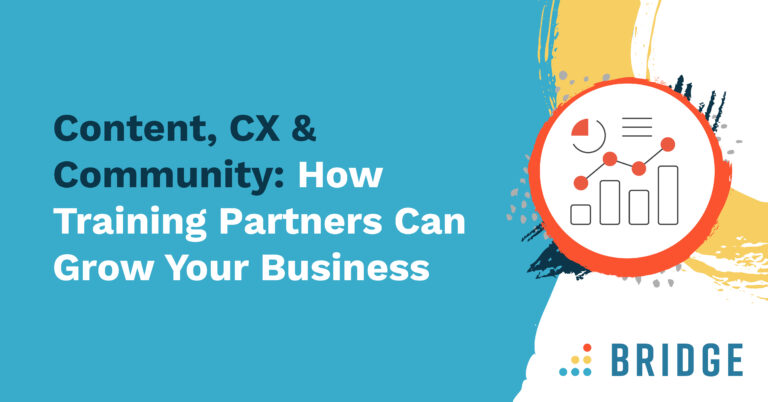Employees want to learn. Research regularly shows that the opportunities for learning, growth and development are a key driver of retention and engagement, and often the reason job applicants decide to join an organisation. But how are companies adapting to this? Is their approach to learning evolving in line with what their employees, and potential new hires, expect?
To answer these questions, we partnered with Bridge to survey employees and senior HR and Learning & Development practitioners, to gain a greater understanding of attitudes towards learning, employee development and performance management in the UK. You can see the full results of our survey by clicking here.
What Employees Are Saying
For employees, having the opportunity to learn is crucial, with 70% saying it is essential when choosing where to work, and an overwhelming 98% identifying it a decisive factor in staying with a company. They have a good reason too, with almost three quarters feeling they need to learn more to be able to do their job well and perform at the required level. However, it would be a mistake for organisations to think that the only learning their workers needed was role specific, as many also told us that they also wanted to improve their digital skills and technical knowledge, to help in areas such as project management.
All employees want to get ahead and not merely keep skills and knowledge up to date, yet much of the daily commentary around learning focuses too much on purely the assumed preferences of younger employees. Rather than catering for a specific demographic in the workforce, we found that the challenge is more about responding to changing mindsets. People of all ages want to learn and keep on top of business challenges, and expect to have information available at all times, and across many formats. Organisations will need to give people access to knowledge and information as and when they need it.
Our research with Bridge underlined that individuals no longer favour face-to-face classroom style learning, but prefer self-directed learning, during working hours, with access to information across platforms and devices. This helps them to overcome business challenges in real-time, improving productivity, performance and engagement.
The Shift In Career Development Responsibility
Driving this is a shift in who has ownership of an individual’s career development. Historically this was overseen by HR, in conjunction with the L&D team, however we found that ownership now rests heavily with the employee and their line manager. In fact, our research showed that the learning function appears to have the least input.
The key role for HR now is to help develop a learning culture. When practitioners were asked about their priorities for improving business performance over the next 12 months, our research found that developing better skills and knowledge, and improving employee engagement, were far and away the most important.
Delivering successful business outcomes depends heavily on developing and optimising the skills and knowledge of the workforce, which in turn will help improve productivity and drive employee engagement, and therefore retention. Only a quarter of respondents felt their business had a learning culture.
To improve this, the business needs to develop a digital learning strategy, offering learning approaches that reflect the way employees now expect to access and consume information. Over half of the practitioners we surveyed thought that a digital approach would be more cost effective, yet only a quarter were happy with the current level of user adoption of their digital learning systems. We explore potential ways to improve this in our white paper.
Employees want to take control over how and when they learn. For organisations to derive real long-term commercial benefits from employee development, they need to support their HR teams in enabling a learning culture, and providing the technologies necessary for effective learning and improvement of skills and knowledge.
About the author
Mervyn Dinnen is a talent analyst, advising employers and HR technology businesses on the emerging trends impacting hiring, retention and engagement. He is a writer and international speaker on recruitment and HR trends, and an award-winning recruitment blogger. He spent 20 years as a recruitment and HR practitioner.




